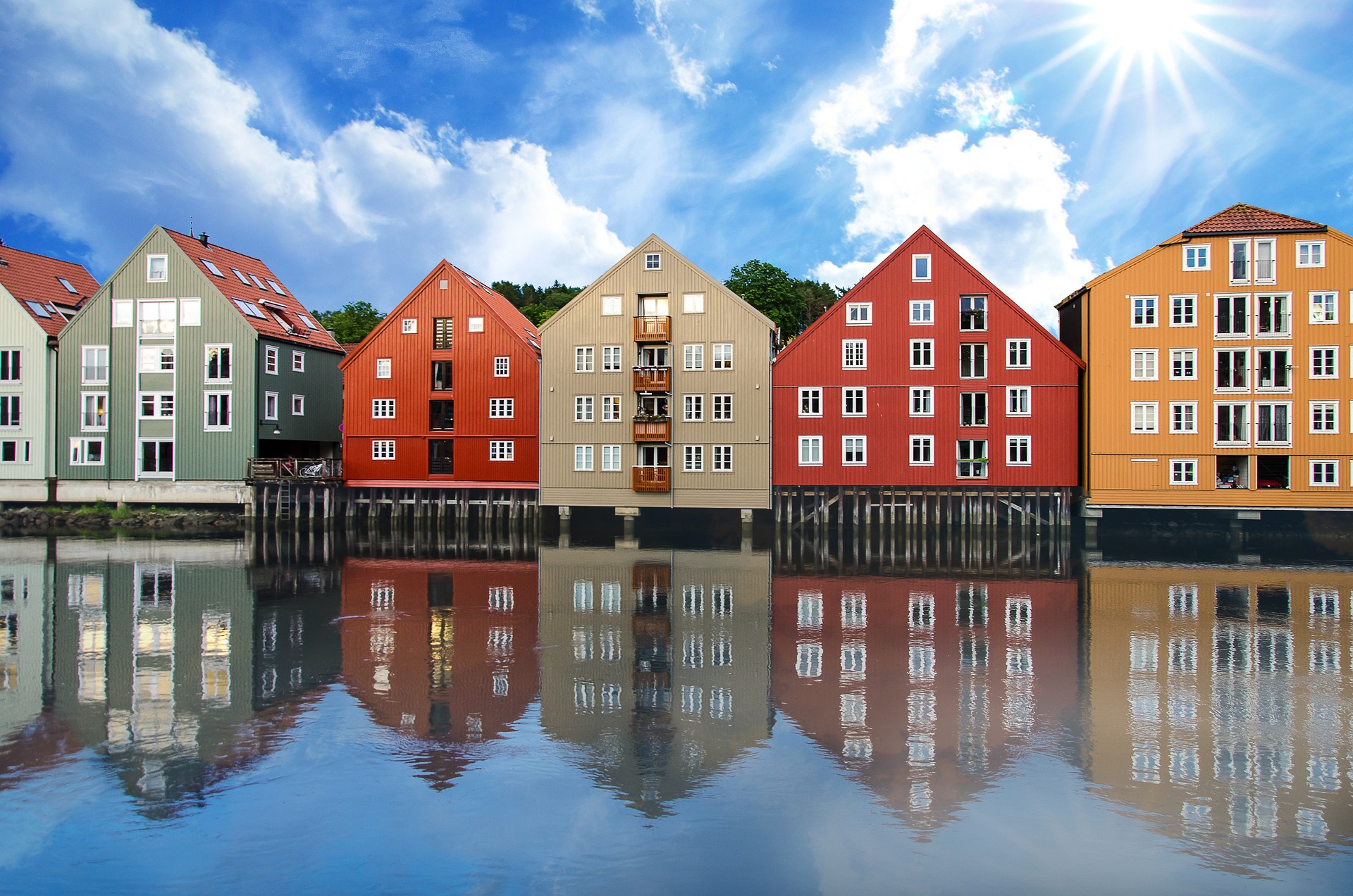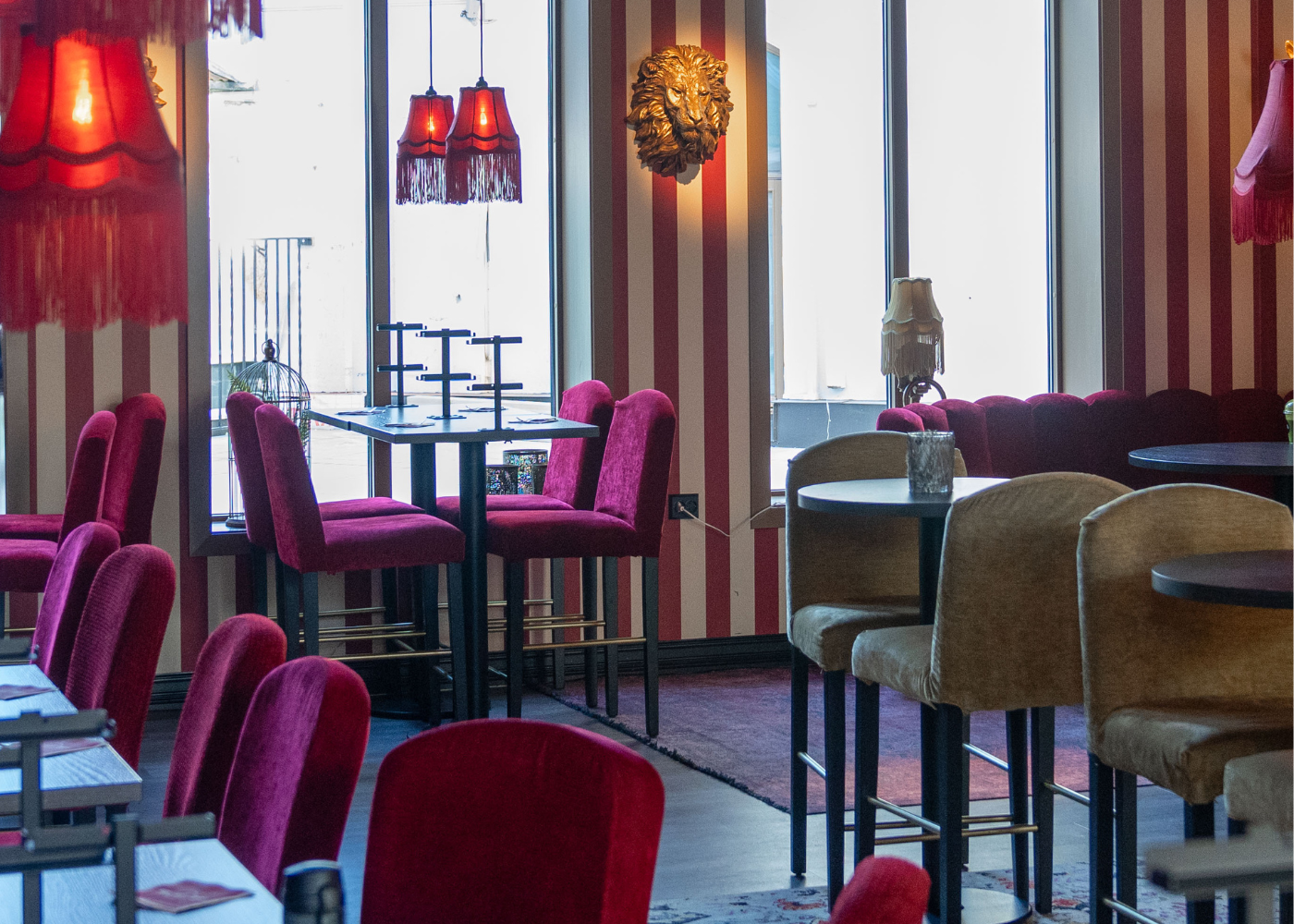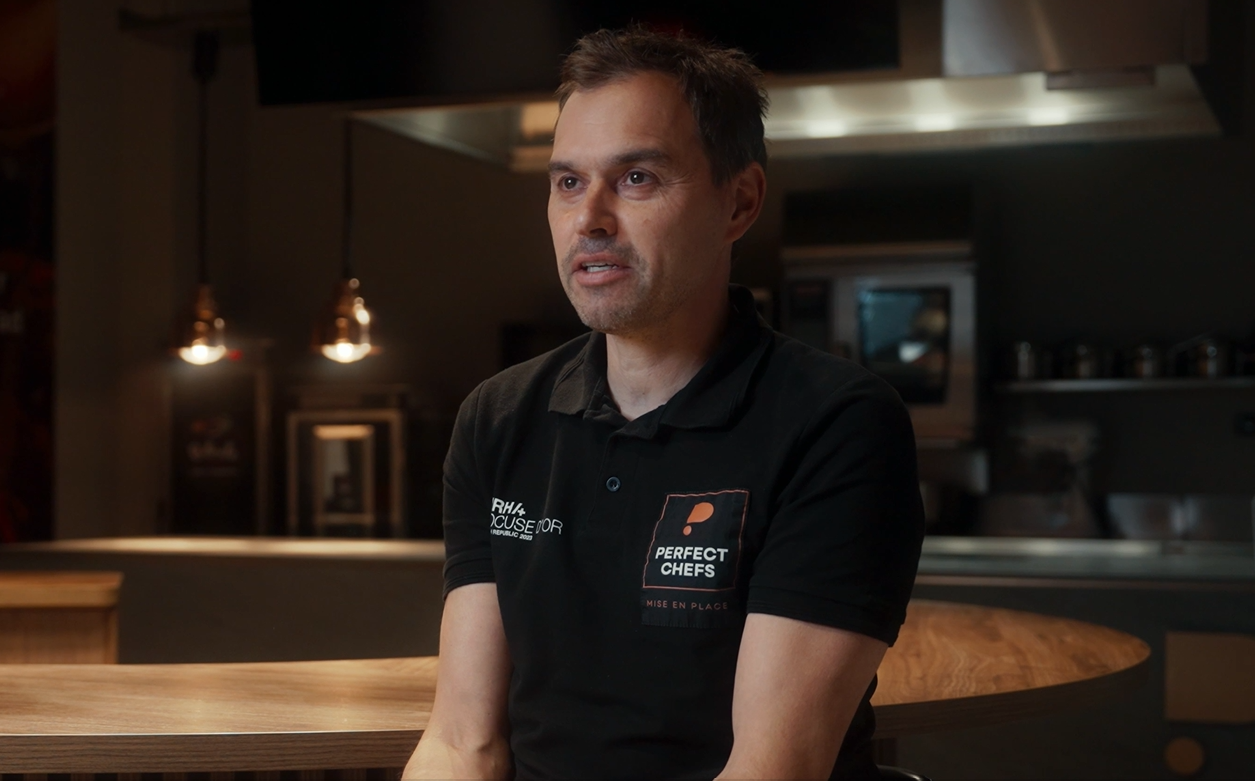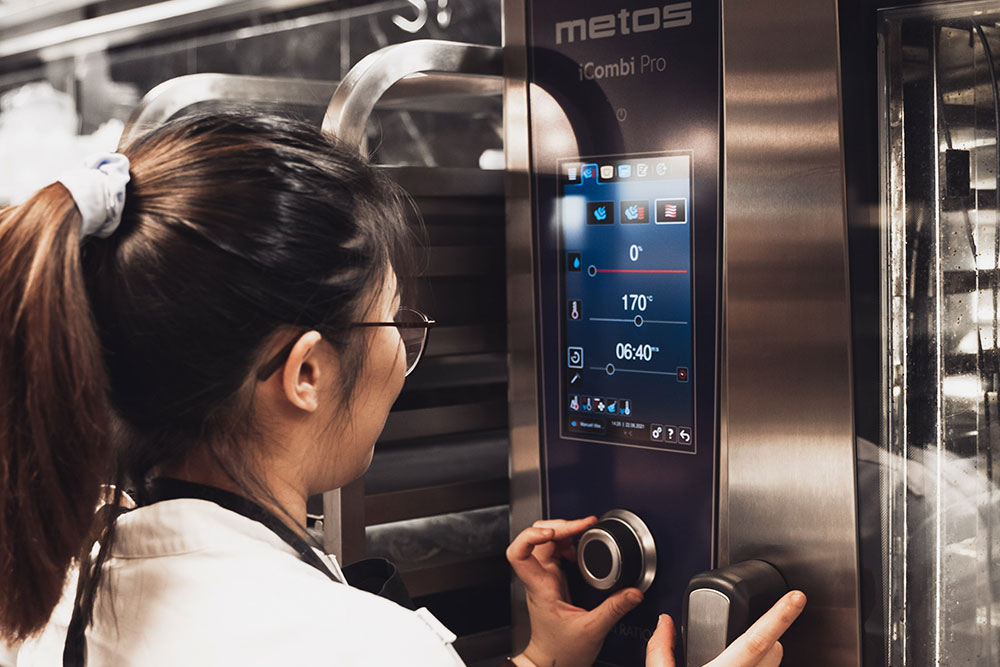Maintain kitchen equipment regularly – save money and the environment - Metos NO
-
Preparation
-
Cooking
- Cooking Show all products in category
- Back
- Kettles
- Hot Fill pumps
- Sous Vide basins
- Pressure cookers
- Ovens
- Ranges
- Bratt pans
- iVario
- Pizza equipment and pizza accessories
- Restaurant equipment series
- Griddles
- Grills
- Fryers
- Salamanders and toasters
- Pasta cookers
- Sushi machines
- Hot dog warmers and steamers
- Circulators
-
GN containers and trays
-
Food distribution and food transport
-
Serving units and worktops
- Serving units and worktops Show all products in category
- Back
- Buffet series
- Heated drawers
- Bain-maries
- Counters with heated top
- Heated cupboards
- Cold basins
- Cold counters
- Cold drawers
- Cold work station
- Pizza work station
- Neutral counters
- Plate dispensers
- Water dispensers
- GN dividers for basins and drawers
- Heating lamps and heaters
-
Small equipment for serving
-
Glass display cases and air curtain merchandisers
-
Coffee brewing machines
- Coffee brewing machines Show all products in category
- Back
- Glass jug models
- Thermos models
- Coffee Percolators
- Bulk brewing coffee machines
- Water boilers
- Fully automatic coffee machines
- Hot drink dispensers
- Espresso machines
- Grinders
- Modbar modular coffee system
- Coffee trolleys
- Filter papers and thermos dispensers
-
Bar equipment and bar furniture
-
Ice and Ice cream / gelato
-
Cold storage and chilling
-
Dishwashers
- Dishwashers Show all products in category
- Back
- Glasswashers
- Undercounter dishwashers
- Front loaded dishwashers
- Hood type dishwashers
- Pot washers
- Granule washers
- Rack conveyor machines
- Pre-wash machines for WD hood type machines
- Pre-wash machines for WD rack conveyors
- Flight-type washers
- Tray washers
- Trolley washers
- Multiwasher
-
Dishwashing accessories and furnitures
- Dishwashing accessories and furnitures Show all products in category
- Back
- Dishwashing baskets
- Cutlery boxes
- Furniture for undercounter dishwashers
- Furniture for hood type dishwashers
- Furniture for pre-wash machines
- Furniture for pot washers
- Furniture for rack conveyor machines
- Sorting units for dishwashing department
- Pre-wash showers
- Floor washers
- Steam and pressure washers
-
Water filters
-
Kitchen furniture
-
Trolleys
- Trolleys Show all products in category
- Back
- Service trolleys
- Service trolleys with wooden tiers
- Shelf trolleys
- Trolleys for GN containers
- Basket trolleys
- Dispenser trolleys
- Ward service trolleys
- Kettle accessory trolleys
- Tray and cutlery trolleys
- Multipurpose trolleys
- Platform trolleys
- Basin trolleys
- Biowaste and waste trolleys
- Tray return trolleys
- Dish return trolleys
- Plate cassette trolleys
- Flour and spice trolleys
- Salad washing trolleys
- Supplement food trolleys
- Trolleys for transport boxes
- Lifting trolleys
- Laundry trolleys
-
Laundry equipment
-
Outlet
- Outlet Show all products in category
- Back
- Preparation outlet
- Cooking outlet
- Food distribution and food transport outlet
- Serving units and worktops outlet
- Glass display cases and air curtain merchandisers outlet
- Coffee brewing machines outlet
- Bar equipment and bar furniture outlet
- Cold storage and chilling outlet
- Dishwashing outlet
- Kitchen furniture outlet
- All outlet products
-
Preparation
-
Cooking
- Cooking Show all products in category
- Back
- Kettles
- Hot Fill pumps
- Sous Vide basins
- Pressure cookers
- Ovens
- Ranges
- Bratt pans
- iVario
- Pizza equipment and pizza accessories
- Restaurant equipment series
- Griddles
- Grills
- Fryers
- Salamanders and toasters
- Pasta cookers
- Sushi machines
- Hot dog warmers and steamers
- Circulators
-
GN containers and trays
-
Food distribution and food transport
-
Serving units and worktops
- Serving units and worktops Show all products in category
- Back
- Buffet series
- Heated drawers
- Bain-maries
- Counters with heated top
- Heated cupboards
- Cold basins
- Cold counters
- Cold drawers
- Cold work station
- Pizza work station
- Neutral counters
- Plate dispensers
- Water dispensers
- GN dividers for basins and drawers
- Heating lamps and heaters
-
Small equipment for serving
-
Glass display cases and air curtain merchandisers
-
Coffee brewing machines
- Coffee brewing machines Show all products in category
- Back
- Glass jug models
- Thermos models
- Coffee Percolators
- Bulk brewing coffee machines
- Water boilers
- Fully automatic coffee machines
- Hot drink dispensers
- Espresso machines
- Grinders
- Modbar modular coffee system
- Coffee trolleys
- Filter papers and thermos dispensers
-
Bar equipment and bar furniture
-
Ice and Ice cream / gelato
-
Cold storage and chilling
-
Dishwashers
- Dishwashers Show all products in category
- Back
- Glasswashers
- Undercounter dishwashers
- Front loaded dishwashers
- Hood type dishwashers
- Pot washers
- Granule washers
- Rack conveyor machines
- Pre-wash machines for WD hood type machines
- Pre-wash machines for WD rack conveyors
- Flight-type washers
- Tray washers
- Trolley washers
- Multiwasher
-
Dishwashing accessories and furnitures
- Dishwashing accessories and furnitures Show all products in category
- Back
- Dishwashing baskets
- Cutlery boxes
- Furniture for undercounter dishwashers
- Furniture for hood type dishwashers
- Furniture for pre-wash machines
- Furniture for pot washers
- Furniture for rack conveyor machines
- Sorting units for dishwashing department
- Pre-wash showers
- Floor washers
- Steam and pressure washers
-
Water filters
-
Kitchen furniture
-
Trolleys
- Trolleys Show all products in category
- Back
- Service trolleys
- Service trolleys with wooden tiers
- Shelf trolleys
- Trolleys for GN containers
- Basket trolleys
- Dispenser trolleys
- Ward service trolleys
- Kettle accessory trolleys
- Tray and cutlery trolleys
- Multipurpose trolleys
- Platform trolleys
- Basin trolleys
- Biowaste and waste trolleys
- Tray return trolleys
- Dish return trolleys
- Plate cassette trolleys
- Flour and spice trolleys
- Salad washing trolleys
- Supplement food trolleys
- Trolleys for transport boxes
- Lifting trolleys
- Laundry trolleys
-
Laundry equipment
-
Outlet
- Outlet Show all products in category
- Back
- Preparation outlet
- Cooking outlet
- Food distribution and food transport outlet
- Serving units and worktops outlet
- Glass display cases and air curtain merchandisers outlet
- Coffee brewing machines outlet
- Bar equipment and bar furniture outlet
- Cold storage and chilling outlet
- Dishwashing outlet
- Kitchen furniture outlet
- All outlet products
Maintain kitchen equipment regularly – save money and the environment

Environmental considerations are more important than ever when it comes to the procurement of professional kitchen equipment. When acquiring equipment, the entire lifecycle from manufacturing to maintenance and recycling should be considered. In Finland, professional kitchen equipment has a long lifespan, so maintenance plays a significant role both in terms of euros and the environment.
According to life cycle assessments we have commissioned, in certain product categories, up to 99% of the total environmental impact of a device occurs during its use. In addition to energy consumption, proper maintenance directly affects the performance of the device, and the consideration of environmental issues by service providers has an indirect impact.
The environmental burden generated by kitchen equipment is often calculated in the form of electricity, water, and detergent consumption. Additionally, the total consumption of a kitchen includes the energy used for ventilation, heating, cooling, and lighting. These factors are not independent of each other but form interdependent relationships. A frequently cited example is an induction stove, which can minimize waste heat produced in the kitchen, thereby affecting energy consumption for ventilation and cooling.
The operating hours of the device affect the maintenance needs
The performance and environmental burden of new devices are at an optimal level. So, the devices operate as they should. As devices are used, wear and tear on components, material aging, and lime buildup in water cause energy loss.
For example, damage or hardening of a refrigerator seal causes heat leakage into the cabinet, requiring the refrigeration system to produce more cold air and increasing the running time of the system. This results in increased energy consumption and premature aging of the refrigeration equipment.
Damage to the dishwasher's drainpipe seal, on the other hand, leads to additional water, electricity, and detergent consumption as warm wash water flows into the drain. Neglecting to remove lime from heating elements slows heat transfer from the element to water, increasing electricity consumption and reducing the machine's capacity from its original level. Similar examples can be found in almost all professional kitchen equipment.
Repeated faults and issues contribute to environmental burden in the form of wasted energy and additional maintenance visits.
Maintenance saves energy
The environmental burden during device operation is minimized, and device performance is maintained when the device is regularly maintained throughout its lifecycle.
Daily cleaning and maintenance procedures must be performed as instructed in the user manual. In addition to user-specific procedures, the device may require actions that only a qualified electrician can perform. Scheduled, periodic maintenance is an important part of sustainable and responsible operation.
During periodic maintenance, the kitchen equipment inventory is inspected, and the operation of the devices is reviewed. Worn and maintenance-requiring parts of the devices are replaced, and necessary descaling and cleaning are performed. At the same time, the safety of the devices is ensured by checking the correct operation of electrical circuits and safety switches. Scheduled maintenance is based on device-specific preventive maintenance instructions and plans. The maintenance interval depends on the operating environment and the usage of the devices.
Periodic maintenance increases the reliability of the devices and keeps their environmental burden and lifespan at planned levels. When devices are maintained proactively, there is less need for corrective maintenance.
Contact maintenance at tel. 020 300 300.
Metos's entire service package operates in accordance with the ISO 14001 environmental certification requirements. Solutions for optimizing energy, water, and detergent consumption are developed in product design. Environmental considerations such as minimizing waste material generation and recycling are considered in product factories.





